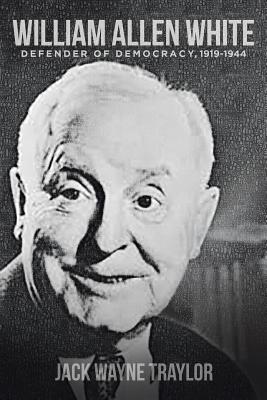Once upon a time, William Allen White of Emporia, Kansas, was a household name in America. An acquaintance of every twentieth century president from Theodore Roosevelt to Franklin Roosevelt, he held a close friendship with the former and generally was an admirer of the latter. White allied himself with the Progressive movement early in the twentieth century, originally from the influence of T. R., but also from others such as Woodrow Wilson. The author of numerous books, both fiction and non-fiction, and an important political advisor within the Republican party, although he traveled and spoke often both in the United States and sometimes abroad, White nevertheless was most proud of the fact that he was a small-town newspaper editor in Emporia until his death there in 1944. He was an important supporter of middle class and middle western values, but a close examination of his writings from the end of World War I until 1944 shows that he was most concerned about support for democracy, which he defined as Christianity institutionalized. This came at a time when democratic principles were coming under scrutiny or outright attack, both at home and abroad. Politically he always sought to promote the moderate course, attempting to bring both major parties together in a common ground. Even though he is not widely known today, perhaps his message has a significant value to twenty-first-century America.

William Allen White: Defender of Democracy, 1919-1944
Once upon a time, William Allen White of Emporia, Kansas, was a household name in America. An acquaintance of every twentieth century president from Theodore Roosevelt to Franklin Roosevelt, he held a close friendship with the former and generally was an admirer of the latter. White allied himself with the Progressive movement early in the twentieth century, originally from the influence of T. R., but also from others such as Woodrow Wilson. The author of numerous books, both fiction and non-fiction, and an important political advisor within the Republican party, although he traveled and spoke often both in the United States and sometimes abroad, White nevertheless was most proud of the fact that he was a small-town newspaper editor in Emporia until his death there in 1944. He was an important supporter of middle class and middle western values, but a close examination of his writings from the end of World War I until 1944 shows that he was most concerned about support for democracy, which he defined as Christianity institutionalized. This came at a time when democratic principles were coming under scrutiny or outright attack, both at home and abroad. Politically he always sought to promote the moderate course, attempting to bring both major parties together in a common ground. Even though he is not widely known today, perhaps his message has a significant value to twenty-first-century America.